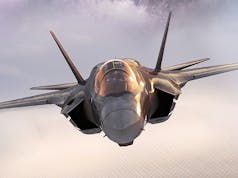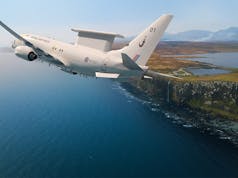Airbus has announced that it plans to cut 2,362 jobs in its Defence and Space division over the next two years.
Airbus cited a “flat space market and postponed contracts on the defense side” for the decision to cut 829 jobs in Germany, 630 in Spain, 404 in France, and 357 in Britain.
A further 142 jobs will be cut in other countries, it said, adding that it was in talks with its European works council on the restructuring.
“Airbus Defence and Space has entered the consultation process with the company’s European works council on the division’s planned restructuring. While the underlying business perspectives especially in the core business remain solid, these steps became necessary after the division achieved a book-to-bill ratio below 1 for the third year in a row, mainly caused by a flat space market and postponed contracts on the defence side.
The plans presented to the employee representatives foresee the reduction of 2,362 positions until end of 2021, thereof 829 in Germany, 357 in UK, 630 in Spain, 404 in France and 142 in other countries. These efforts will be supported by a reinforced profitability programme and further measures to increase long-term competitiveness and safeguard the division’s future positioning.
The need for restructuring was first announced in December 2019 and emphasized also during the company’s Annual Press Conference in Toulouse on February 13. Airbus Defence and Space will provide updates on its plans and continues a constructive dialogue with employee representatives. Further financial implications are under assessment and will be communicated at a later stage.”













Which Airbus defense programs are faltering?
Cheers
A400 for one. Limited export sails.
MALE RPAS Eurodrone for one. Germany insists on 2 engines which increases costs and maintenance. But Germany wants to use them in Europe (to spy on their population?) and i believe it’s a civil aviaton requirement
Almost forgot, Typhoon business is not exactly thriving, lack of commitment to modernize which inevitably affects sales potential
And most importantly Germany keeps shooting Airbus in the foot by blocking export sales, Saudi Typhoons
Very informative. Thank you both.
Cheers!
Wonder if the timing is to pressure Germany to replace their clapped-out Tornados for nuclear bombing with the Typhoon instead of the F18?
Maybe its time for Germany just to sort out the level of its defence budget full stop.
They spend the same as us in £ terms don’t they? Given our creative accounting to get to the 2% of GDP target I do wonder whether they actually spend a similar % too.
How much they spend in £ terms depends on the exchange rate on the day. More meaningful is what their military spend goes on. If most of it is pension contributions and other personnel/admin/overhead costs while their equipment programmes wither away…
Then why does none of their equipment work, genuine question
Because they do not invest into it, I understand in some ways that Germany might not want to have a strong defence force due to their history. Then again I look at Japan, their defence strusture is strong, they are well equipped but it is a defence force. Possibly Germany should follow the Japanese concept.
Agree, if Germany had a pacifist constitution like Japan then the world would be a more comfortable place. However. As the USA and UK have been the main guarantors of Germany’s defence and security for the last 70 years, that is why Germany pays token amounts towards its defence and has low numbers of combat ready units.
Maybe times will change with Brexit and Trumps USA and Germany will go back to being a worthwhile NATO ally?
Its about £6 billion less than the UK, with 10 million more people and running a positve ecconomy rather than a negitve one as the UK is then this is just not right. Why should countires that are not as rich as Germany pay for the defence of Germany?
The £6 billion might not sound much, but that is this year when they are now spending 1.35%, but for the past two-three decades the diffrence was about £10-£15 at some points the diffrence was as much as £25 billion per year. Remember that Germany was spending as little as 1.02% whilst at the same time the UK was spending 3-4%. Take that over just the two decades that is a saving of £200-£300 billion, possibly as much as £400 billion, what could the UK do with that in national infrastructure projects?
Put it a diffrent way £6 billion would give the RN 20 new T31s on top of the current build or 10 T31s and 3 HMAS Canberra type ships. The second year the RAF/FAA could get 80 extra F35Bs, the third year the Army could re-equip and build three new armoured divisions and from the fourth year have the money to operate all of this equipment. That would give the British Armed Forces real hitting power.
The US for example have increased their defence budget this year by $56 billion or the equivalant to the UK defence budget and £7 billion more than Germany’s enhanced budget. So it is my opinion that Germany has used the US-UK defence shield to invest into their industry and national infrastructure. So they got defence on the cheap.
How exactly is the German economy positive and the UK’s negative?
I think he’s talking about a balance of payments surplus vs deficit in the UK.
Same as Ireland who rely on the RAF for their Air Defence instead of buying a small number of Typhoon or the like for their own forces
Typhoon is not nuclear capable, and to qualify it as such would take years and be exceptionally expensive. I don’t see that being on the cards.
It’s certainly not currently certified for use with the American nukes that the Tornadoes are.
The F-18 already is, which is why it’s an easy choice.
However Airbus are making noises that if Germany chooses the F-18 rather than buy Typhoon’s and get them certified, then it will pull out of the Franco-German FCAS project.
US FA18 are nuclear capable but export versions traditionally haven’t been but I’m assuming that’s only a software fix. Also not sure Airbus can turn round to a company shareholder and threaten to pull out off a project.
As an addition reading into the US position in the New York financials from January they still want them to buy F35As quoted as a Pentagon insider. “a deterrent must be credible, Typhoon and F18 are proven platforms but with the improvements in Moscow’s air defences the question is whether a 4th generation aircraft could survive that nuclear mission.” Boeing at Eurofighter both responded with the same statement essentially saying with the advances in ‘jamming’ technology Moscow’s air defences would not be an issue.
As far as I see it US want Germany to have F35 but they can’t say that, Germany want to do it on the cheap equally they can’t say that, Boeing and Eurofighter want to claw some orders before 4th gen is dead so will say what they need to, ‘jamming’ is fine until the target knows then you’re screwed.
If it gets Boeing a sale and keeps the Germans capable of dropping US nukes then I doubt the US Government or Congress would stand in the way of the sale. Boeing are certainly pitching the F18 hard.
Airbus is a public company, so while the German government can apply political pressure, it couldn’t stop Airbus pulling out of FCAS. The only way would be for 51% of the shareholders to vote to replace the board.
Of course Airbus could just be bluffing. With the state Boeing are in, with sales at Airbus booming as a result, they don’t exactly need the cash from the Typhoon sale.
Airbus may be a publically traded company, but French, German and Spanish government own 25%, so Airbus cannot just do what it wants. Ie When CEO Tom Enders wanted to merge with BAE in 2012, politicians blocked it. Technically with 25% share, these governments do not “own” Airbus, but since a lot of the big contracts involve these governments (airlines, military, regulations etc…), they do have ways to put pressure on Airbus
It can do whatever it wants subject to majority shareholder decision and market specific rules and regulations. So the merger was probably blocked under market competition rules or national interest (ie national security) rules.
They can put pressure, they can do that with any business, but ultimately where the company acts within rules and regulations then it’s the collective shareholders who call the shots. If that wasn’t the case, nobody would buy the shares.
Sean that deal was blocked by the German government refusing to negotiate its share hold and the lack of promised work to the Hamburg production line. Nothing to do with competition rules or national security.
Admittedly The respective governments might not own the majority share of the company but they do all own the land the production facilities are on so can pressure/control from multiple directions.
heres The facts for you
https://www.bbc.co.uk/news/business-19897699